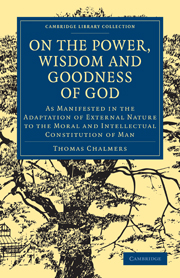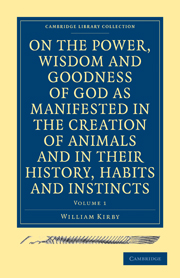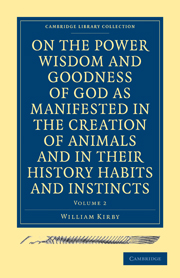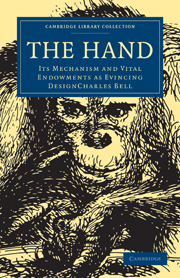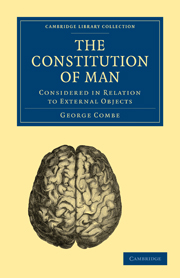On the Power, Wisdom and Goodness of God
The eight Bridgewater Treatises of the 1830s aimed to contribute to an understanding of the world as created by God. This, the first treatise, by the Scottish mathematician and churchman Thomas Chalmers, proposes an 'argument for the character of the Deity, as grounded on the laws and appearances of nature'. It sees harmonies between the intellectual and material worlds as manifesting the hand of God in their creation, anticipating aspects of today's 'intelligent design' theory. Volume I includes chapters comparing virtuous and vicious personalities; the concept of habit; how external nature is adapted to man's moral constitution; and how moral and intellectual aspects of mankind lead to the civil and political well-being of society. Volume II provides specific examples of God's design including happiness and the connection between intellect, emotion and will, concluding that areas left as open questions by science's lack of proof are indications of divine architecture.
Product details
No date availablePaperback
9781108000727
616 pages
216 × 14 × 34 mm
0.77kg
Table of Contents
- Introductory chapter
- Part I. On the adaptation of eternal nature to the moral constitution of man:
- 1. First general argument – On the supremacy of conscience
- 2. Second general argument – On the inherent pleasure of the virtuous and misery of the vicious affection
- 3. Third general argument – The power and operation of habit
- 4. On the general adaptation of external nature to the moral constitution of man
- 5. On the special and subordinate adaptations of external nature to the moral constitution of man
- 6. On those special affections which conduce to the civil and political well-being of society.

